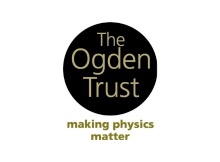Choose an article from the Association for Science Education publication, Primary Science, that describes a particular strategy or approach. Try this with a group/class of children. Reflect on the outcomes, with reference to the article.
Teachers are encouraged to look for an article themselves; any article that presents an approach or strategy for teaching science can be chosen, and scheme tutors will be able to provide advice about whether or not a particular article would be suitable. Alternatively, the list of articles included here would be suitable for this task and are available to download.
Developing Talk in the Primary Classroom
Primary Science (2020) 1590, 12-16
This article outlines different techniques to develop talk and higher order thinking within science lessons including Odd One Out, What if…?, True or False, Cloze text, Ordering a text, and Meet the expert.
Big Books or Little Books
Primary Science (2020) 1590, 47-51
This article explains what floorbooks are and how using them to record children’s learning in science can support effective teacher assessment of practical science skills and conceptual understanding, and models the collaborative nature of science.
Moving a Wow to an Understanding: Demystifying Science
Primary Science (2019) 159, 9-13
This article discusses some of the possible pitfalls of commonly used wow moments in science such as making a volcano, making a larva lamp, squealing balloons, dancing raisins, and floating ping-pong balls. For each activity there are suggestions for how to ensure meaningful learning.
Could Using Frames Make Science More Accessible for Children with Special Learning Requirements?
Primary Science (2019) 159, 29-31
This article introduces the Frames for Focus approach (placing an object in the centre of a paper A3 frame and adding instructions in the corners). The benefits for children with special learning requirements are discussed.
Grab a Bucket, We're Taking Science Outdoors!
Primary Science (2020) 161, 33-35
This article describes Bucket School as an approach for exciting outdoor learning.
Learning about STEM Careers through Science and Drama
Primary Science (2020) 163, 14-16
This article explains how drama and role-play can provide a context for children’s learning in science and broaden their awareness of STEM careers.


